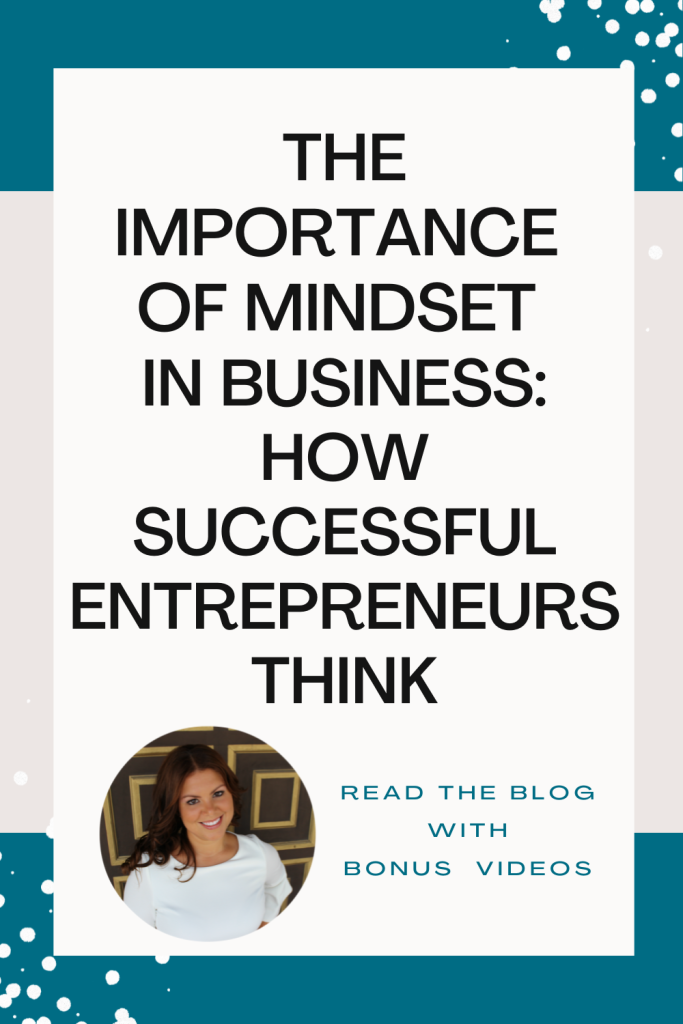This post is all about mindset.

When it comes to business success, many people tend to focus on external factors such as market trends, funding, and technology.
While these things certainly play a role in the success of a business, they are not the only factors that matter. In fact, one of the most important elements of success in business is often overlooked: mindset.
What is mindset, exactly?
Simply put, it’s the set of beliefs, attitudes, and habits that shape how you think about yourself and the world around you. Your mindset can either help or hinder your success in business, depending on how you approach challenges and opportunities.
After working with clients in over 20 countries and helping over 100,000 of my email subscribers, I am excited that you are here to day to learn more about the most essential part of your success- your mindset.
You might also like these blog posts:
Marketing your Coaching Business: How I Generated Over 100,000 Free Leads Using Ads
Let’s take a look at some of the key ways that mindset can impact business success.
Belief in Yourself and Your Ideas
First and foremost, a successful business mindset requires a strong belief in yourself and your ideas.
Entrepreneurs who doubt themselves or their abilities are more likely to give up when faced with obstacles, or to make decisions based on fear rather than confidence.
The Importance of Mindset in Business: How Successful Entrepreneurs Think
On the other hand, entrepreneurs who truly believe in their vision are more likely to persist through tough times and to make bold decisions that lead to success.
They are also more likely to inspire others to believe in their ideas, whether those people are investors, customers, or employees.
Of course, it’s not always easy to maintain a strong belief in yourself and your ideas, especially when you face setbacks or criticism.
That’s why it’s important to actively work on developing your confidence and resilience as an entrepreneur.
This might involve seeking out feedback from trusted mentors or peers, practicing self-reflection and self-care, or simply reminding yourself of past successes and strengths.
Click here to learn more about the millionaire mindset.
Growth Mindset vs. Fixed Mindset
Another important aspect of mindset in business is the difference between a growth mindset and a fixed mindset. In a fixed mindset, individuals believe that their abilities and intelligence are fixed and unchangeable.
They may avoid challenges or feedback that could expose their weaknesses, and they may give up easily when faced with failure.
In contrast, those with a growth mindset believe that their abilities can be developed and improved over time through hard work and learning.
They embrace challenges as opportunities for growth, and they see failure as a temporary setback rather than a reflection of their worth as a person.
As you might imagine, having a growth mindset can be a huge advantage in business. Entrepreneurs who approach challenges and failures as opportunities for learning are more likely to innovate, adapt, and pivot when necessary.
They are also more likely to attract and retain top talent, as they create a culture of learning and improvement within their organizations.
Risk-Taking and Innovation
In addition to belief in oneself and a growth mindset, successful entrepreneurs also tend to be risk-takers and innovators.
They are not afraid to try new things or take calculated risks in pursuit of their goals, and they are constantly seeking out new ways to improve their products, services, or processes.
Of course, not every risk pays off, and not every innovation is a success.
Click here for career change motivation.
But entrepreneurs who are willing to take risks and innovate are more likely to stay ahead of the curve and to create products or services that truly stand out in a crowded marketplace.
This doesn’t mean that every entrepreneur needs to be a wild risk-taker or a radical innovator, of course.
But it does mean that successful entrepreneurs need to be comfortable with uncertainty and ambiguity, and willing to experiment and iterate in pursuit of their goals.
Watch the Millionaire Mindset Video Series here now:
Embracing Failure and Learning from Mistakes
Finally, mindset in business also involves how entrepreneurs approach failure and mistakes.
Successful entrepreneurs understand that failure is an inevitable part of the entrepreneurial journey, and they are not afraid to take risks even if they might fail.
But more importantly, they know how to learn from their failures and mistakes. Instead of dwelling on what went wrong or blaming others, they take a step back and analyze the situation objectively.
They look for lessons learned and take those lessons with them as they move forward.
Click here for sales motivation.
One important aspect of learning from failure is being open to feedback and criticism. This can be difficult, as it can be tempting to become defensive or to take feedback personally.
But successful entrepreneurs understand that feedback is a valuable tool for growth and improvement, and they actively seek out feedback from trusted sources.
They also know how to respond to feedback in a constructive way. Rather than becoming defensive or making excuses, they listen carefully to feedback and look for ways to incorporate it into their work. They may even seek out additional feedback to ensure that they are addressing any issues or weaknesses effectively.
Ultimately, a growth mindset in business involves a willingness to learn, grow, and adapt in pursuit of success.
Successful entrepreneurs understand that they will face challenges and setbacks along the way, but they are confident in their abilities to overcome those obstacles and to achieve their goals.
Developing a Strong Mindset for Business Success
So, how can you develop a strong mindset for business success? Here are a few tips:
- Believe in yourself and your ideas. This may require some introspection and self-reflection to identify your strengths and weaknesses, but having a strong belief in yourself and your vision is key to success.
- Cultivate a growth mindset. Embrace challenges, seek out feedback, and look for opportunities to learn and improve.
- Be willing to take risks and innovate. This doesn’t mean being reckless or impulsive, but rather being willing to try new things and to experiment in pursuit of your goals.
- Learn from failure and mistakes. Rather than dwelling on what went wrong, look for lessons learned and take those lessons with you as you move forward.
- Seek out support and mentorship. Surround yourself with people who believe in you and your vision, and seek out advice and guidance from trusted mentors or peers.
Click here for more entrepreneur motivation.
Conclusion
In conclusion, mindset is a crucial factor in business success.
Successful entrepreneurs understand that their beliefs, attitudes, and habits shape how they approach challenges and opportunities, and they actively work to cultivate a strong mindset that will help them achieve their goals.
Whether you are an experienced entrepreneur or just starting out, developing a growth mindset and embracing risk-taking, innovation, and learning from failure can help you succeed in business and in life.
So, take the time to reflect on your mindset and how it is impacting your work, and make a commitment to cultivating a strong, positive mindset that will set you up for success.

This post was all about mindset.







